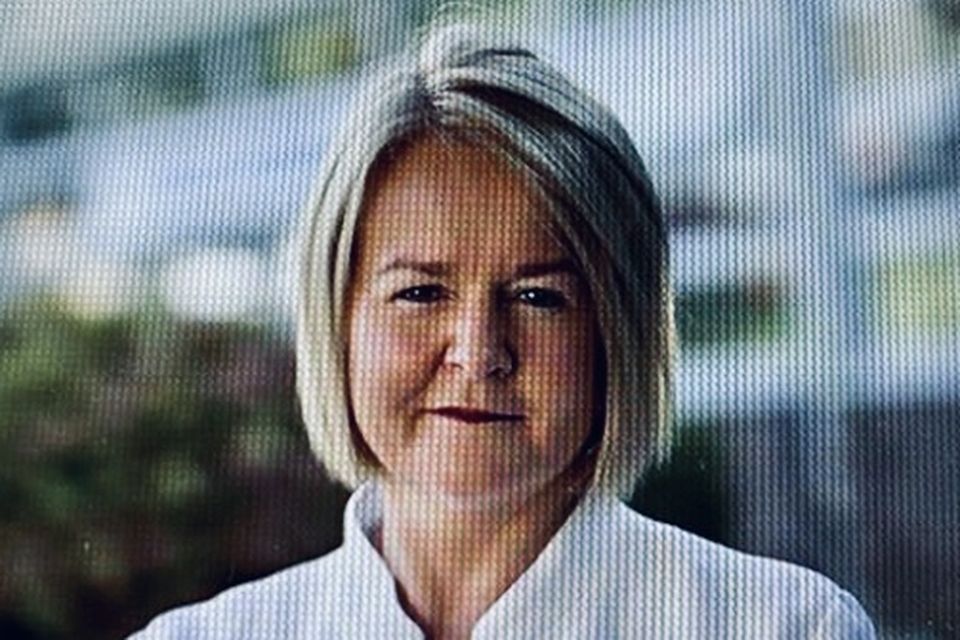System for Irish exemptions in schools causing ‘unnecessary tension’ says principal
Barbara Ennis, principal of Alexandra College in Dublin
The principal of a Dublin secondary school says she has been “inundated” this year with applications for exemptions from studying Irish in the Leaving Certificate and at other levels, and it is causing “unnecessary tension” between school principals and parents.
Barbara Ennis, principal of Alexandra College in Milltown, Dublin, who is also an Irish teacher, says she believes Ireland should follow the lead of Wales, and Irish should no longer be compulsory after the Junior Certificate.
The principal of the fee-paying south Dublin school with 650 pupils was responding to publication of a recent Oireachtas committee report which calls on Education Minister Norma Foley to abolish the current exemption system.
Almost 63,000 schoolchildren in Ireland received an exemption from Irish between 2022 and 2023 — 49,570 at second level (12pc of 406,000 students) and 13,060 at primary level (2.4pc of 549,000 pupils).
“Having to choose between higher level maths and higher level Irish, both equally demanding at Leaving Cert level, means that Irish always loses out as the extra 25 points at higher level for maths forces students’ hands,” Ms Ennis told the Sunday Independent.
The additional allowance for exemptions due to “anxiety” has made it even more difficult for school principals, she says.
“There are genuinely a lot of kids who are very anxious due to the impact of Covid-19, and will secure an exemption from Irish, and will then continue with French or German.”
In 2019, changes introduced by the Department of Education made it much more difficult for principals to refuse, she explains.
“Where students have learning difficulties but they are not severe enough to warrant an exemption, they are tested for literacy levels, and supports are put in place.
“They are tested again to see if they have improved, which puts a huge extra burden on myself, teachers and the learning support department.
“I am an Irish teacher myself and I understand how it can be difficult for some students, but the current system is not working and it is killing the language by stealth.
“You can’t blame pupils if they think their time is better spent on taking honours maths, but that is not a suitable option for everyone.
“The Department of Education doesn’t realise the personal implications for us, given that we are interested in the well-being of our students,” she says.
The principal’s final say can cause “unnecessary tension”.
She suggests two changes would be more positive — awarding bonus points for Leaving Cert Irish also, and/or introducing the Welsh approach where all children in Wales have to learn Welsh until the age of 16 and then it is optional for A-level.
In contrast with Ireland, nearly a quarter of students in Wales conduct most of their schooling through the Welsh language. The use of Welsh is widespread and around a third of the population speak it fluently.
In Ireland, 8pc of primary and 4pc of secondary students go to Irish-medium schools, with under 2pc of the total population saying they speak Irish daily.
“Wales is aiming to create a large proportion of schools where Welsh is the only medium of communication and at the same time increase proficiency in Welsh at second level in English-medium schools, so it is not quite the same system,” Ms Ennis says.
“The major difference between our system and theirs is that after GCSEs, Welsh is not compulsory as it’s recognised that the senior cycle becomes a rush for grades. Fewer subjects are studied in the Welsh system so it makes sense not to make it compulsory. However, the same logic should apply in Ireland.
“Even though we have more subjects at Leaving Certificate level, continuing with the compulsion at senior level narrows choice, and Irish is then hammered by the extra 25 points available at higher level for maths.
“Having studied any language from age four to 16 years should lead to good proficiency. But resentment built up at senior level over compulsion filters right down to primary level and creates a negative culture from day one.”
The recently published Oireachtas Committee on the Irish Language, Gaeltacht and the Irish-speaking community report said the exemption system is falsely convincing school students that learning Irish is “difficult” compared to other languages.
It proposed genuine exemptions for the most vulnerable being granted for any second language, where necessity is proven, and not specifically Irish. The report has been criticised by the Dyslexia Association of Ireland.
In 2011, a proposal by Fine Gael to end compulsory Irish for the Leaving Certificate became an election issue, when Donegal TD Dinny McGinley said he had not been consulted about the election pledge by his party leader Enda Kenny.
Kenny, a fluent Irish speaker, argued that Irish as a compulsory option had clearly failed.
The move was strongly criticised by Irish language advocacy groups, and by both Fianna Fáil and the Labour Party, with Micheál Martin stating that “it would lead not (to) the revival of Irish by 2030 but to its extinction”.
Join the Irish Independent WhatsApp channel
Stay up to date with all the latest news















